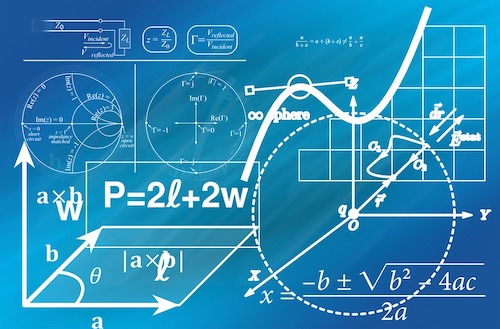Many students who start looking into 3D modeling often find the perceived math skills surrounding this career choice to be repelling. In reality, however, those who believe that the said major revolves around mathematics are perpetuating a stereotype. Whilst there is no way to give a simple yes-or-no answer here, it is important to realize that 3D modeling goes far beyond calculus, algebra, geometrics, or anything similar.

As the usage of 3D printing continues to grow, the questions like the previous one are becoming more and more common. In fact, according to Forbes, three-dimensional visuals are set to completely revolutionize one of the largest industries in the world which is fashion. Due to such positive momentum, it is quite unfortunate that a high number of prospective modelers are turning down a lucrative career simply because of their fear of math. So, does one need to possess outstanding knowledge of math to become a 3D modeler and maintain a successful career? While the most accurate answer is “it depends,” anyone who says “no” is not wrong.
Job Objectives
The key concepts that every 3D modeler has to know boil down to the creation of three-dimensional models that are built on computer software. Since the clientele ranges from basic fashion designers to specialized scientists, the types of models that can be required are extremely broad. Accordingly, the most essential job requirements and objectives are going to include animation, drawing, 3D design, texture optimization, and digital asset management. When looking at every single one of those particular factors, there is nothing that screams math. All of them do require a foundation of knowledge in other areas, however. For instance, animation has much more to do with understanding how to use animation software than leveraging calculus, per se. Similarly, design, drawing, and digital assets seldom, if ever, cross over to the field of math.
Knowing the Basics
Whilst outstanding knowledge of math is certainly not required to be a successful 3D modeler, saying that the career has nothing to do with math would be misleading. Even though it is not prioritized, modelers do need to maintain the ability to resolve an occasional formula and modify the software. This is why every university that offers a degree in 3D modeling will mandate that people complete a couple of math credits. Fortunately, anyone who ends up struggling with them should not be discouraged as there are no direct relationships between math grades and the success of a prospective 3D modeler.
Specializing in Certain Areas
As mentioned, 3D modelers work in industries that range from fashion to science. This is why the types of projects that they can have are incredibly versatile. No modeler will be required to know exactly how to do every single task that is tied to their job. Just like doctors, accountants, or lawyers specialize in different fields of medicine, accounting, or law, 3D modelers pick what interests them the most. They subsequently build their career around that selected area and improve skills that are needed for the corresponding market. Consider, for instance, someone who would like to work in the field of physics where they can prepare experiments via advanced computer modeling. It is quite obvious that enough math knowledge to handle physics formulas will be necessary. Nonetheless, those who solely focus on physics will easily improve their math understanding for that one single area. The need to become an expert in calculus, geometrics, linear equations, or anything else is non-existent. As long as the math requirements surrounding one’s particular specialization are met, they can enjoy a fruitful career.
Knowing One’s Weaknesses
Finally, 3D modelers must recognize how their math skills or lack thereof give them a great reason to pursue specific types of project. If a newly graduated modeler is asked to participate in complex animation design and they know that their math understanding is terrible, there is nothing wrong with finding another engagement. The benefit of working in this market is the fact that the shortage of work rarely happens. Thus, people who acknowledge their weak points and prefer not to turn them into strengths can just find other things to do.
Courtesy of the wide range of possibilities here, it is quite clear than in-depth knowledge of math is not going to make much difference. If a 3D modeler can grasp the basic concepts and remembers to stay away from more complex tasks, he or she will not face much adversity related to their math skills.
Related Resources:
What Degree Do I Need To Be An Animator?
What Can I Do With An Art Degree?
What is the Median Salary for an Animator?
What is a Typical Day in the Life of an Animator?
Is it Easy to Work for Myself as an Animator?
Are Their Certain Parts of the Country Where It’s Easier to Find a Job as an Animator?
What Kind of Company Does a 3D Modeler Work For?
Should I Get a Master’s to Become a 3D Modeler?
What Kind of Fields Use a 3D Modeler?
Is it Easy to Work for Yourself as a 3D Modeler?
What is a “Good” Salary for a 3D Modeler?
What are the Best Programs for a 3D Modeler to Learn?
Can You Be an Animator and Work on Movies that aren’t Animated?
